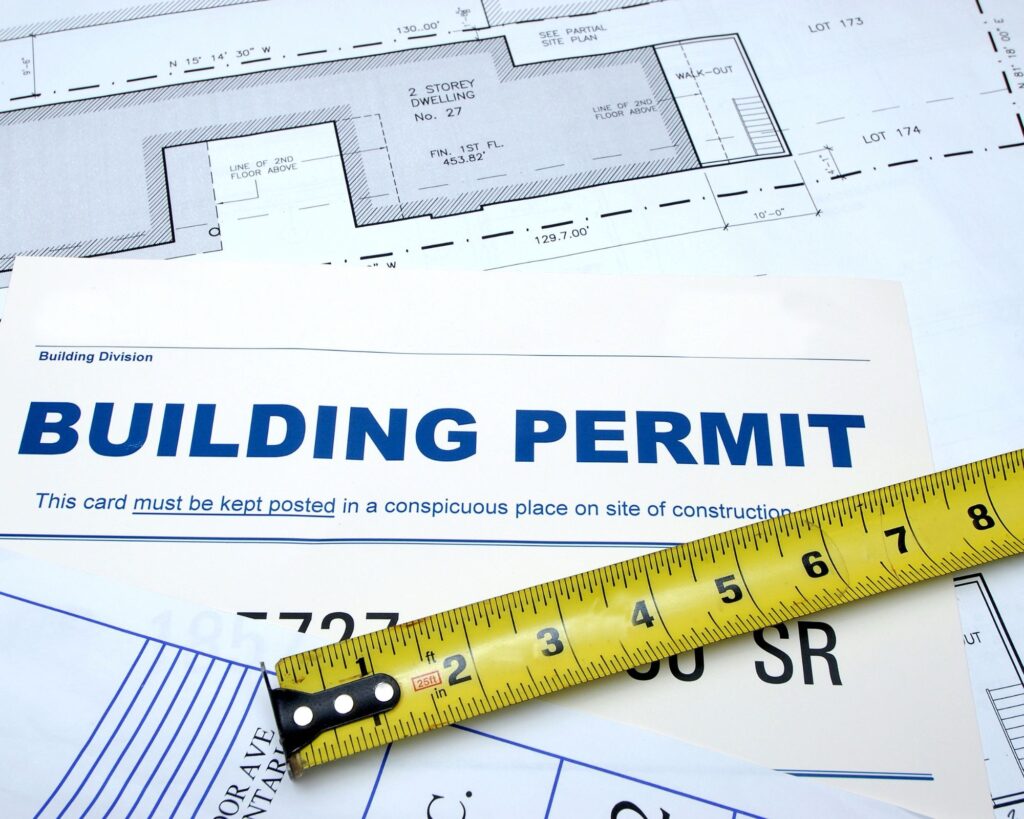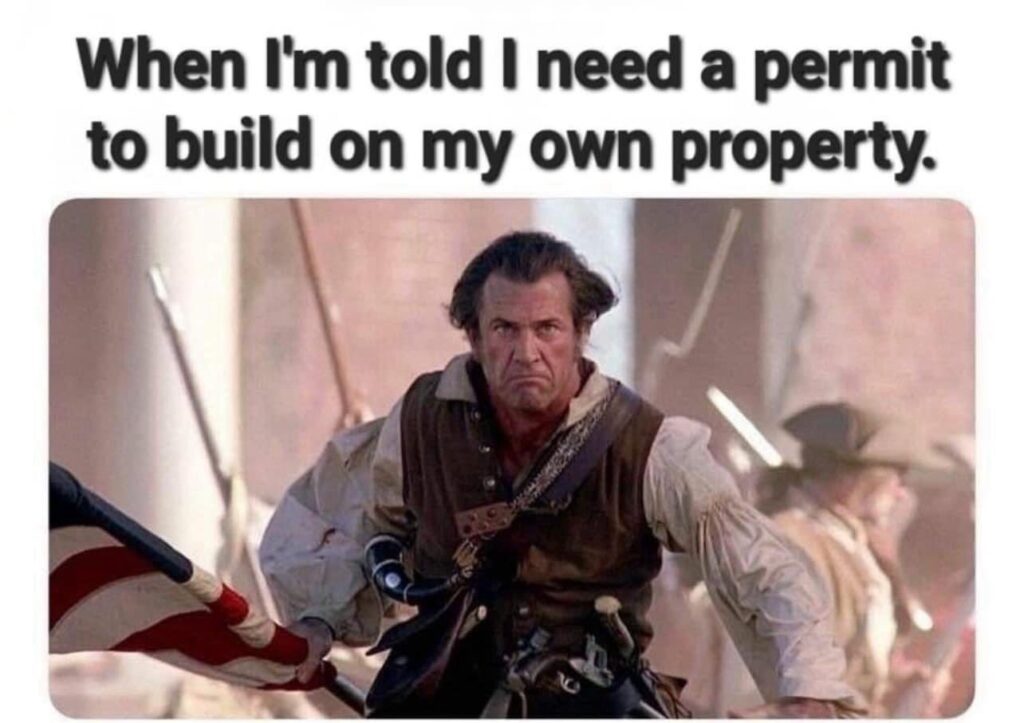
Understanding Building Permits: Why Are They Necessary?
Building on your own property might seem like a straightforward right. However, the reality of constructing new structures or even modifying existing ones involves navigating a complex system of building permits. These permits play a crucial role in ensuring safety, compliance with zoning laws, and maintaining the value of your property.
The Purpose of Building Permits
Building permits are essential because they ensure that all construction projects meet local, state, and sometimes federal building codes and regulations. These standards are designed to protect the safety of the inhabitants and the community at large. For instance, building codes regulate structural integrity, fire safety, and sanitation facilities to prevent disasters and health hazards.
Zoning Laws and Land Use
Apart from safety, building permits also enforce zoning laws that dictate how properties in certain areas can be used. These laws help manage urban and rural development, controlling the density and types of buildings allowed in specific neighborhoods. Zoning regulations ensure that the land use is optimal, balancing residential, commercial, and industrial needs to create functional and sustainable communities.
Protecting Property Values
Another significant aspect of requiring permits is the protection of property values. Unregulated construction can lead to poor quality structures that might not only endanger the residents but also affect the aesthetic and economic value of surrounding properties. Ensuring that all buildings comply with a unified standard helps in maintaining and even increasing the value of homes in the area.
Related Considerations
While the permit process might seem tedious, it’s integral for long-term benefits. For instance, knowing whether to stain or paint your deck not only affects the durability and appearance of your project but also complies with aesthetic standards set by local regulations. Similarly, adding something as simple as a DIY bird feeder might require a check if local wildlife protection laws are involved.
In the next section, we will delve into what happens if you proceed without a permit, the potential legal and financial repercussions, and how they can affect not just your project but also your insurance coverage and legal standing, linking to insights on maximizing insurance coverage and understanding legal boundaries like stand-your-ground laws.
Understanding why permits are necessary sets a foundation for any construction or renovation project, ensuring that you are not only compliant but also contributing positively to your community and safeguarding your investment.

The Consequences of Building Without a Permit
Building without the required permits can lead to a range of legal and financial complications, affecting everything from the immediate use of your property to its long-term value. Understanding these consequences can help you navigate the risks and ensure your building projects are both compliant and successful.
Legal Implications
One of the most immediate repercussions of building without a permit is the legal action that local authorities can take. This could include stop-work orders, fines, and even the requirement to demolish unauthorized constructions. Such actions not only halt your project but can also incur additional costs that could have been avoided with proper permitting.
Financial Risks
Building without a permit can significantly impact your financial situation. For one, fines for non-compliance can be hefty, depending on the jurisdiction and the extent of the violation. Moreover, unpermitted work might need to be corrected or removed at your expense, potentially doubling the costs when you include the redoing of work to meet code standards.
Additionally, unpermitted constructions can affect property insurance. Policies often contain clauses that void coverage for damages related to unapproved alterations or constructions. This means that if a fire, structural failure, or other incident occurs, the insurance may not cover the damages, leaving you with significant out-of-pocket expenses. It’s crucial to understand how to maximize your insurance coverage while minimizing costs by ensuring all building work is properly documented and approved.
Impact on Property Value and Sales
Properties with unpermitted work can be more challenging to sell. During the sale process, potential buyers often conduct thorough inspections and require disclosures of all home improvements and the corresponding permits. Lack of proper permits can deter buyers, reduce the property’s market value, or lead to renegotiations after an offer is made.
Choosing the Right Legal Help
If you find yourself in a situation where unpermitted work needs legal review, or if you need to navigate the complexities of local building laws, choosing the right lawyer becomes paramount. For guidance on selecting a legal representative who understands real estate and construction law, consider tips from sources like how to pick the right lawyer.
In the next section, we will discuss how to properly apply for a building permit, including tips on navigating the application process smoothly and effectively, to avoid the pitfalls of unpermitted building and ensure your projects proceed without delay.

How to Apply for a Building Permit: A Step-by-Step Guide
Successfully applying for a building permit involves understanding the requirements, gathering the necessary documents, and navigating the local bureaucracy efficiently. This section provides a clear, step-by-step guide to help streamline the process and ensure your building project meets all legal standards.
Step 1: Understand the Requirements
Before beginning any construction, it’s essential to know the specific requirements that apply to your project. This involves researching local zoning laws, building codes, and permit requirements. Each jurisdiction may have different rules regarding the types of projects that need permits, such as new constructions, major renovations, or even minor additions like decks and fences.
Step 2: Prepare Your Documentation
The permit application process typically requires detailed documentation, including:
- Site plans: A scaled drawing of the property showing existing structures and the proposed construction.
- Construction plans: Detailed drawings and specifications of the construction or renovation, including materials, dimensions, and types of installations.
- Owner’s consent: If you’re not the property owner, written permission from the owner is necessary.
- Contractor information: If using professional help, their credentials and proof of insurance may be required.
Gathering these documents in advance can significantly speed up the application process and reduce the likelihood of delays.
Step 3: Submit Your Application
Once you have all the necessary documentation, submit your application to the local building department. This can often be done online, though some areas may require in-person submissions. Be prepared to pay any applicable fees, which can vary based on the project size and type.
Step 4: Navigate the Review Process
After submission, your application will undergo a review process where city planners and building inspectors assess your plans to ensure they comply with local codes and regulations. This process can take from a few weeks to several months, depending on the complexity of the project and the efficiency of the local department.
Step 5: Address Any Issues
It’s not uncommon for the initial review to result in requests for additional information or revisions to the plans. Respond promptly and accurately to these requests to keep your project moving forward. Maintaining open communication with the reviewers can help resolve issues quickly.
Step 6: Obtain Your Permit
Once your application meets all requirements and passes the review, you’ll be issued a building permit. It’s important to post this permit at the construction site and adhere to all the stipulated conditions during construction.
Step 7: Schedule Inspections
During and after construction, scheduled inspections by local authorities may be necessary to ensure the work complies with the approved plans and building codes. Successfully passing these inspections is crucial for obtaining the final approval and officially completing your project.
Navigating the building permit process efficiently ensures that your construction projects are legally compliant, safe, and capable of passing future inspections—whether for personal satisfaction or resale. In the final section, we’ll explore some frequently asked questions about building permits to clarify common concerns and provide additional tips for a hassle-free building experience.

Frequently Asked Questions About Building Permits
Navigating the world of building permits can often lead to confusion and frustration. To help clarify some common uncertainties, here’s a detailed look at frequently asked questions about building permits, providing you with informed answers to streamline your building projects.
How long does it take to get a building permit?
The time it takes to obtain a building permit can vary greatly depending on the locality, the complexity of the project, and the efficiency of the permit office. Generally, simple projects like minor renovations might take a few weeks, while larger projects requiring more detailed review can take several months. It’s best to apply as early as possible to avoid delays in your project timeline.
What are the costs associated with obtaining a building permit?
The costs of building permits vary by jurisdiction and the scope of the project. Fees are typically based on the project’s size, cost, or type of construction. Additional costs might arise from needing to hire professionals for drawing up plans or for required inspections during and after construction.
Can I perform my own construction work if I get a building permit?
Yes, property owners can often perform their own construction work, but it’s crucial to adhere to the same standards expected of professionals, including compliance with local building codes and ordinances. Depending on the project and location, you may be required to demonstrate your capability to perform the work or hire licensed contractors for certain tasks.
What happens if I proceed without a building permit?
Proceeding without a building permit can lead to numerous issues, including fines, the requirement to dismantle any work done, and problems when trying to sell the property. Additionally, any damage or accidents caused by unpermitted work might not be covered by your insurance, leading to significant financial liabilities.
What should I do if my permit application is denied?
If your permit application is denied, the first step is to understand the reasons for denial, which can typically be addressed in a revised application. You may need to alter your plans to comply with local codes or request a variance, which allows for exceptions to certain zoning requirements. Consulting with a knowledgeable lawyer can also provide guidance and improve the likelihood of a successful reapplication.
How do I find out what specific permits I need for my project?
The best way to determine specific permit requirements is to contact your local building department. They can provide detailed information based on your project’s specifics, including any additional permits for electrical, plumbing, or mechanical work.
Understanding these FAQs and preparing accordingly can significantly ease the process of obtaining the necessary permits for your construction projects. By being well-informed and proactive, you can ensure that your building activities are compliant, safe, and successful, allowing you to enjoy your improved property without legal complications or unnecessary delays.

Building with Confidence
Navigating the permit process is a crucial step for any construction or renovation project on your property. While it might seem like a daunting task, understanding the importance of building permits and following the correct procedures can save you from potential legal issues and financial losses in the future. Properly acquiring and complying with building permits ensures that your project is carried out safely, legally, and to a standard that maintains or enhances your property value.
Recap of Key Insights
- Safety and Compliance: Building permits ensure that all construction meets safety standards and complies with local building codes, protecting you and your community.
- Protection of Investment: Following the permit process helps safeguard your investment by ensuring that your property meets legal standards, which is essential for future resale and insurance coverage.
- Avoiding Penalties: Understanding and adhering to permit requirements prevents costly fines and legal issues that could arise from non-compliance.
Moving Forward
Armed with the right information and resources, you can approach your building projects with confidence. Whether you’re planning a small addition or a major construction, the key is to stay informed, consult professionals, and adhere to all local regulations. This proactive approach not only facilitates a smoother building process but also ensures the longevity and legality of your construction efforts.
Resources for Further Guidance
For those looking to dive deeper into specifics or who might need additional support, consider the following:
- Local Building Department: They are your primary resource for specific rules and requirements related to your project.
- Professional Consultants: Architects, surveyors, and lawyers can provide expert advice tailored to your needs.
- Online Resources: Websites like DIY Home Wizard and Legal Know It All offer a wealth of information that can help you understand more complex aspects of building laws and permit applications.
By taking these steps and utilizing available resources, you can ensure that your building projects are successful and compliant, giving you peace of mind and satisfaction in your property improvements. Remember, the effort you put into securing the right permits not only protects you legally and financially but also contributes to the overall safety and aesthetics of your community.

As an Amazon Associate we earn from qualifying purchases through some links in our articles.



